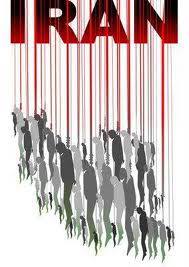
 Executions in Iran surged to nearly 1,000 in 2015, a United Nations investigator said on Thursday, the highest level in more than a quarter-century.
Executions in Iran surged to nearly 1,000 in 2015, a United Nations investigator said on Thursday, the highest level in more than a quarter-century.
The investigator, Ahmed Shaheed, the special rapporteur for human rights in Iran, said in a report to the organization’s Human Rights Council that at least 966 people were put to death in the country last year, roughly double the number executed in 2010 and 10 times as many as were executed in 2005.
Iran has been one of the world’s leading users of the death penalty, along with China and Saudi Arabia.
According to annual figures on capital punishment compiled by Amnesty International, the 2015 figure for Iran is the highest since 1989, when more than 1,500 people were executed. Most executions in Iran are by hanging, with a majority of the condemned having been convicted of drug-related offenses.
Continue reading the main story
Related Coverage
Mr. Shaheed’s report, presented at the Human Rights Council’s meeting in Geneva, came less than two months after Amnesty International said Iran was a leading executioner of juvenile offenders, despite improved legal protections for children in the country and Tehran’s longstanding pledge to abolish the death penalty for convicts younger than 18. Amnesty said more than 160 condemned Iranian juveniles were on death row.
Month-by-month figures in Mr. Shaheed’s report showed that executions increased fairly steadily in the first half of 2015, reaching 136 in June — more than four per day — which the investigator called “especially alarming.”
Mr. Shaheed also criticized Iran for what he described as the country’s “widening crackdown on freedom of expression and opinion” last year, despite pledges by President Hassan Rouhani to relax constraints.
While Mr. Shaheed welcomed the release of Jason Rezaian, a Washington Post reporter freed in January after a year and a half in prison, he said hundreds of Iranian journalists, bloggers and activists were confined in prison and detention facilities.
Mr. Shaheed, a former foreign minister of the Maldives, was appointed to the special rapporteur post in 2011. The authorities in Iran have regularly rejected his findings as lacking credibility and have never permitted him to visit. He conducts much of his research through contacts with human rights activists and others inside Iran.
By: http://www.nytimes.com

